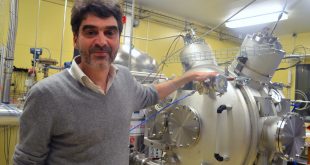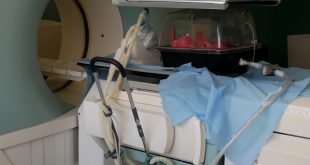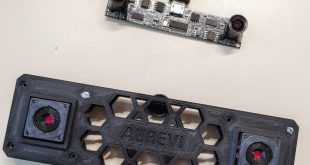The start-up AiiNTENSE was incubated at IMT Starter and develops decision support tools for healthcare with the aim of advising intensive care personnel on the most appropriate therapeutic procedures. To this end, the start-up is developing a data platform of all diseases and conditions, which it has made available to researchers. It therefore seeks to provide support for launching clinical …
Read More »Health
When engineering helps improve healthcare
Editorial. Tomorrow’s medicine will be at least 4P: personalized, preventive, predictive, participative. ‘At least,’ because some would readily add “precise,” “proof” (evidence-based), “pathway-based” etc. Beyond naming this type of medicine and determining the correct number of Ps, medicine is clearly undergoing a profound change. A transformation supported in part by engineering, which is bringing major innovations to the healthcare …
Read More »Is dark matter the key to the medical scanner of the future?
A team of researchers at IMT Atlantique is developing a new type of medical scanner called XEMIS. To create the device, the team drew on their previous research in fundamental physics and the detection of dark matter, using liquid xenon technology. The first time the device was tested was using small animals. It allowed the scientists to significantly lower the …
Read More »Aerosol therapy: An ex vivo model of lungs
A researcher in Health Engineering at Mines Saint-Étienne, Jérémie Pourchez, and his colleagues at the Saint-Étienne University Hospital, have developed an ex vivo model of lungs to help improve medical aerosol therapy devices. An advantage of this technology is that scientists can study inhalation therapy whilst limiting the amount of animal testing that they use. This article is part …
Read More »Bone implants to stimulate bone regeneration
Mines Saint-Étienne’s Centre for Biomedical and Healthcare Engineering (CIS) seeks to improve healthcare through innovations in engineering. David Marchat, a materials researcher at CIS, is working on developing calcium phosphate-based biomaterials. Due to their ability to interact with living organisms, these bone implants can help regenerate bones. This article is part of our dossier “When engineering helps improve healthcare“ …
Read More »An “electronic nose” analyzes people’s breath to help sniff out diseases
In partnership with IMT Atlantique, a team of researchers at IMT Lille Douai have developed a device which can measure the level of ammonia in someone’s breath. The aim of the artificial nose is to use this device to create a personalized follow-up care for patients affected by chronic kidney disease. Eventually, the machine could even allow doctors to detect …
Read More »When healthcare professionals form communities through digital technology
Digital technology is shaking up the healthcare world. Among its other uses, it can help break isolation and facilitate online interactions in both the private and professional spheres. Can these virtual interactions help form a collective structure and community for individuals whose occupations involve isolation and distance from their peers? Nicolas Jullien, a researcher in economics at IMT Atlantique, looks …
Read More »Imaging to help people with brain injuries
People with brain injuries have complex cognitive and neurobiological processes. This is the case for people who have suffered a stroke, or who are in a minimally conscious state and close to a vegetative state. At IMT Mines Alès, Gérard Dray is working on new technology involving neuroimaging and statistical learning. This research means that we can improve how we …
Read More »Virtual reality improving the comfort of people with visual impairments
People suffering from glaucoma or retinitis pigmentosa develop increased sensitivity to light and gradually lose their peripheral vision. These two symptoms cause discomfort in everyday life and limit the social activity of the people affected. The AUREVI research project involving IMT Mines Alès aims to improve the quality of life of visually-impaired people with the help of a virtual reality headset. …
Read More »Chronic disease: what does the Internet really change in patients’ lives?
For the first time, a study has assessed the impact of digital technology on the lives of patients with chronic diseases. It was conducted by the ICA patient association collective, in partnership with researchers from the Smart Objects and Social Networks chair at Institut Mines-Télécom Business School. The study provides a portrait of the benefits and limitations perceived by chronically ill …
Read More » I'MTech L'actualité scientifique et technologique de l'IMT
I'MTech L'actualité scientifique et technologique de l'IMT









